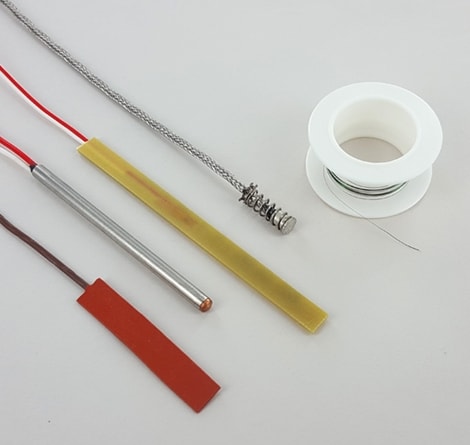Micro-Thermocouples Overview
Learn more about micro-thermocouple temperature sensors from TE Connectivity.

A thermocouple sensor consists of two dissimilar metals, joined together at one end in a thermocouple junction. When the thermocouple junction is at a different temperature than the other end of the wires a millivolt signal is generated this junction is where the temperature is measured. A small voltage is produced by the two metals, which can be measured and interpreted by a control system. The dissimilar metals are individually insulated, and an overcoat is present to maintain an intimate bifilar configuration.
Thermocouples have a wide range of applications, including:
Medical applications, like catheters, require small temperature sensors with specific characteristics. Our micro-thermocouple sensors provide:

Learn more about micro-thermocouple temperature sensors from TE Connectivity.
Stator temperature sensors provide high stability for various applications, including large motors.

Q: What are the advantages and disadvantages of grounded thermocouples?
A: A grounded junction puts the junction in contact with the packaging, protecting, and metal case. This allows for a faster response time, however, a grounded tip is susceptible to electromotive forces in the environment, which might cause potential errors in the measurement. An ungrounded junction, therefore, is one without contact with the metal case. Thus, have a slower response time, but are less likely to provide erroneous readings.
Read More: RTDs & Thermocouples FAQs